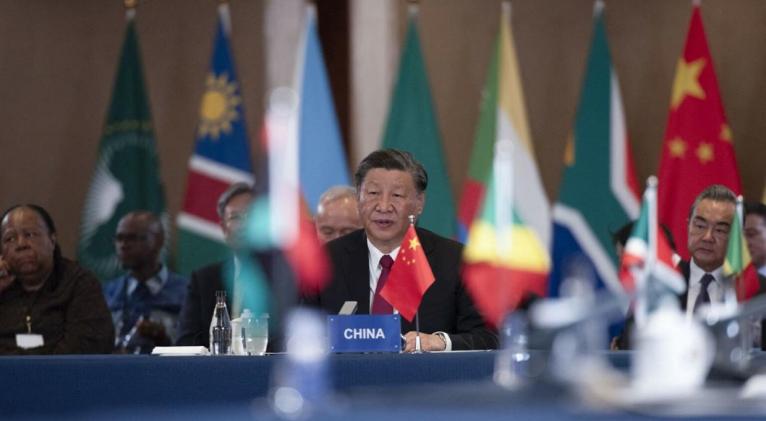Turkey has formally applied to join BRICS
especiales

Turkey has formally applied to join the BRICS group of emerging-market nations in a bid to expand its global influence and strengthen ties beyond its traditional Western allies, Bloomberg reported, citing sources familiar with the matter.
The move by President Recep Tayyip Erdoğan’s government reflects its belief that the global balance of power is shifting away from developed economies, the sources told Bloomberg, speaking on condition of anonymity. Turkey’s diplomatic efforts aim to establish stronger relationships across a multipolar world while maintaining its commitments as a key NATO member, they added.
Turkey’s application to BRICS, which was submitted several months ago, comes amid frustration over the slow progress in its longstanding bid to join the European Union, according to Bloomberg’s sources. The decision is also influenced by strained relations with NATO allies after Turkey maintained close ties with Russia following its 2022 invasion of Ukraine. Both Turkey’s foreign ministry and presidency declined to comment on the application.
BRICS, which stands for Brazil, Russia, India, China and South Africa, recently expanded to include Iran, the United Arab Emirates, Ethiopia and Egypt. Saudi Arabia has been invited to join but has yet to do so. The possibility of further expansion could be discussed at a BRICS summit in Kazan, Russia, scheduled for October 22-24, with Malaysia, Thailand and Azerbaijan also expressing interest in joining.
The BRICS group promotes itself as an alternative to Western-dominated institutions like the World Bank and the International Monetary Fund. New members could benefit from access to financing through the group’s development bank and the opportunity to broaden their political and trade relationships.
Erdoğan’s administration has long accused Western nations of hindering Turkey’s ambitions for a self-sufficient defense industry and a strong economy. Erdoğan has previously advocated for reforming the United Nations Security Council and has expressed interest in joining the Shanghai Cooperation Organisation, a bloc led by Russia and China as a counterbalance to NATO.
China has been a key driver behind BRICS expansion, aiming to increase its global influence by attracting nations that have traditionally aligned with the United States.
Turkey, which has been negotiating EU membership since 2005, views joining BRICS as an opportunity to enhance economic ties with Russia and China and position itself as a trade hub between the EU and Asia. The country is also seeking to attract investment from Chinese electric vehicle manufacturers, potentially leveraging its customs union with the EU to boost market access.
Despite the BRICS application, Turkey continues to pursue EU membership, which remains a “strategic target,” according to Foreign Minister Hakan Fidan. He recently participated in informal talks with EU counterparts for the first time in five years, signaling ongoing efforts to rejuvenate membership negotiations.














Add new comment